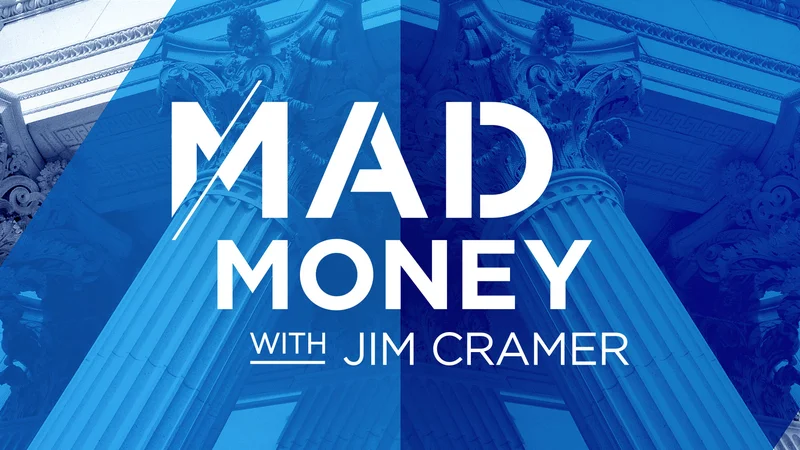Let's be real for a second. Turn on CNBC at 6 p.m. and you’ll see a man who looks like he’s having either a public breakdown or a religious experience over a ticker symbol. This is Jim Cramer, the host of Mad Money, and he’s built an empire on the simple premise that finance should be loud, frantic, and slightly unhinged.
He’s the guy in rolled-up shirtsleeves, pacing the floor like a caged animal, yelling stock picks into the camera. The studio is a sensory assault chamber, a constant cacophony of bull horns, cash register cha-chings, and bizarre sound effects that seem designed to trigger a Pavlovian response in anyone with a 401(k). We're told this is financial news. This is analysis.
But what are we actually watching? Is it sound financial advice, or is it just the world’s most caffeinated game show host playing with other people’s money?
The Pedigree and the Performance
Here’s the part that always gets me. The Jim Cramer you see on the Mad Money show isn't some rando who got lucky with GameStop. The guy went to Harvard. Twice. First for his undergrad, where he ran The Harvard Crimson, and then for law school. After that, he landed at Goldman Sachs before starting his own hedge fund that, by all accounts, made him a ridiculous amount of money. This background is detailed in his Biography, Mad Money, & Facts.
This isn't just background fluff; it’s the entire foundation of the act. The Ivy League degrees and the Wall Street cred are the secret sauce that makes the whole chaotic performance digestible. It’s a bad idea. No, 'bad' doesn't cover it—it’s a brilliant strategy. The madness on screen is palatable because you’re constantly reminded that a very serious, very rich man is behind it all. He’s not crazy; he’s just passionate! He’s not gambling; he’s a genius who’s letting you in on his secrets!

It’s a masterclass in branding. He’s selling the populist rage of a man-on-the-street while flashing the credentials of a Wall Street king. You can’t have one without the other. Without the Harvard Law degree, he’s just a loud guy with a soundboard. Without the screaming and the props, he’s just another boring suit from Goldman. Together, they create this bizarre, unassailable character: the everyman-expert. But does that character actually help anyone make money? Or does it just make for good TV?
Pull the Lever, Get a Stock
The heart of the Mad Money with Jim Cramer experience has to be the Lightning Round. Callers get a few seconds to pitch a stock, and Cramer delivers a gut-reaction verdict: "Boo-yah!" or "Don't buy, don't buy, don't buy!" A recent example includes Cramer’s Lightning Round: ‘I can’t recommend’ UiPath. It's financial advice as a spectator sport.
Watching it is like watching someone play a slot machine. The caller throws in their coin (their stock ticker), Cramer pulls the lever, and the reels spin—will it be a buy, sell, or hold? It’s fast, it’s exciting, and it gives you the instant gratification of a definitive answer. But just like a slot machine, there's no real strategy on display. There's no room for nuance, for context, for the boring-but-essential work of due diligence. It’s pure financial theater. Offcourse, that's the point. It's not meant to be a dissertation on discounted cash flow; it’s a segment designed to keep you from changing the channel.
And let's not forget the history here. This is the same guy who got absolutely torched by Jon Stewart back in 2009 for his role in hyping the very market mechanics that led to the financial crisis. It was a rare moment where the curtain was pulled back, and the performer had to answer for the real-world consequences of his "entertainment." For a brief moment, the fun stopped. But then the show went on, the sound effects got louder, and the machine kept running. So, did anything fundamentally change, or did everyone just agree to forget it ever happened and go back to smashing the "Buy! Buy! Buy!" button? Honestly...
The whole thing reminds me of those old-timey patent medicine salesmen. They’d roll into town with a flashy cart, a great story, and a bottle of sugar water they claimed could cure anything. Cramer’s the modern version of that, but instead of a bottle, he’s selling stock picks. The showmanship is so good you almost forget to ask if the medicine actually works.
It's Just a TV Show, Folks
At the end of the day, Jim Cramer isn't a financial advisor; he's a media personality. He's an entertainer whose product is the stock market. And that's fine, as long as everyone—especially the viewer at home—understands the difference. The danger isn't Cramer himself, but the blurring of the line between financial analysis and reality television. Mad Money is a show, and like any show, its primary goal is to get ratings, not to make you rich. Never, ever forget that.









